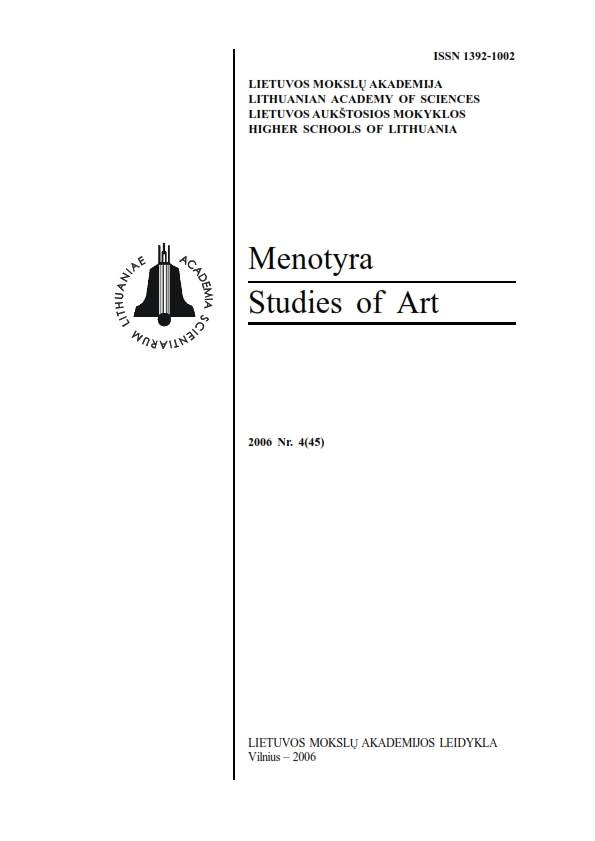Lietuvių tarpukario režisūros poslinkiai teatro kritikos veidrodyje
Improvements in Lithuanian interwar direction reflected in theatre criticism
Author(s): Laura BlynaitėSubject(s): Theatre, Dance, Performing Arts, Interwar Period (1920 - 1939)
Published by: Lietuvos mokslų akademijos leidykla
Summary/Abstract: The article examines the development of Lithuanian theatre criticism of the 1920s and 30s. The reader is presented with an outline of reviews appearing in periodicals back in these days, on plays that were important to the development of Lithuanian directing: L. Pirandello’s Comme çi (ou commme ça) (1928, directed by B. Dauguvietis), V. Krėvė’s Šarūnas (1929, dir. A. Oleka-Žilinskas), W. Shakespeare’s Hamlet (1932) and Twelfth Night (1933, both dir. by M. Chekhov), E. O’Neill’s Marco Millions (1938, dir. A. Jakševičius) and G. Hauptmann’s Before Sunrise (1939, dir. R. Juknevičius). Before the 1920s most play reviewers were unable to evaluate the concepts and singularities of acting in the way that they were presented by the play’s director, or to discuss the scenography and music as components of a single contexture. In the years 1929–1935, significant plays directed by A. Oleka-Žilinskas and M. Chekhov were put on stage. The directors’ thoughts on the directional conceptions of theatre productions and B. Sruoga’s activities influenced theatre criticism. In the late 1930s most of the students who took part in B. Sruoga Theatre Seminars were able to analyze the main components of a play in a professional manner. Stage work was evaluated using aesthetic rather than ideological criteria.
Journal: Menotyra
- Issue Year: 2006
- Issue No: 4(45)
- Page Range: 11-15
- Page Count: 5
- Language: Lithuanian

